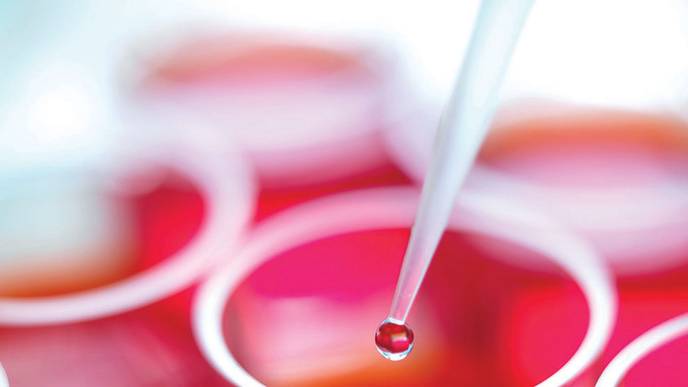Releasing at ECTRIMS 2018
Autologous stem cell transplantation in multiple sclerosis: the London experience
E. Rhone1, R. Nicholas2, E. Olavarria3, I. Gabriel3, M. Kazmi4, E. Silber1, P. Muraro5, Pan-London AHSCT Group 1Department of Neurosciences, King's College Hospital, 2Imperial College Healthcare NHS Trust, Department of Neurosciences, 3Department of Haematology, Imperial College Healthcare NHS Trust, 4Department of Haematology, King's College Hospital, 5Division of Brain Sciences, Department of Medicine, Imperial College London, London, United Kingdom
Introduction: There is accumulating evidence for the efficacy of autologous haematopoietic stem cell transplantation (AHSCT) in multiple sclerosis (MS). Here we describe findings from the Pan-London AHSCT group audit.
Methods: Retrospective audit of AHSCT performed as treatment for MS in 3 London centres during 2012-2017 of all cases with >6 months follow-up. Patient selection has evolved but eligibility criteria emphasised evidence of recent MRI inflammatory lesion activity and, in patients with relapsing MS (RMS), prior failure of treatment with a high-efficacy disease modifying treatment (HEDMT).
Results: Of 54 patients, 55.6% had RMS, 33.3% had secondary progressive MS and 11.1% primary progressive MS. Median age at AHSCT was 41.4 (22-58). 75% of the RMS group had failed a HEDMT. Median number of previous DMTs was 2 (0-5). Median baseline EDSS was 6 (2.0-8.0); median time from diagnosis to AHSCT was 8 years (1-19). Median inpatient stay for transplant was 22 days (17-81). Common complications were bacterial infection (53.8%), fluid overload (61.5%) and EBV reactivation (65.4%). 12 patients (22.2%) required re-admission following the procedure with a median length of stay of 9 days (3-119). 88% of patients were free from disability worsening 36 months post-transplant. 5 patients (9.3%) developed MRI lesions post AHSCT with a median time to development of 21 months (6-78). Of the RMS patients, 5 (16.7%) experienced symptoms consistent with a clinical relapse post AHSCT at a median time of 11 months (6-12); however only one of these patients demonstrated concomitant new lesions on MRI. There was no treatment-related mortality in this cohort.
Conclusion: In this non-trial setting with a varied patient population the results are consistent with previously reported cohorts. AHSCT requires further investigation as treatment in highly active/progressive MS.

Autologous stem cell transplantation in multiple sclerosis: the London experience
E. Rhone1, R. Nicholas2, E. Olavarria3, I. Gabriel3, M. Kazmi4, E. Silber1, P. Muraro5, Pan-London AHSCT Group 1Department of Neurosciences, King's College Hospital, 2Imperial College Healthcare NHS Trust, Department of Neurosciences, 3Department of Haematology, Imperial College Healthcare NHS Trust, 4Department of Haematology, King's College Hospital, 5Division of Brain Sciences, Department of Medicine, Imperial College London, London, United Kingdom
Introduction: There is accumulating evidence for the efficacy of autologous haematopoietic stem cell transplantation (AHSCT) in multiple sclerosis (MS). Here we describe findings from the Pan-London AHSCT group audit.
Methods: Retrospective audit of AHSCT performed as treatment for MS in 3 London centres during 2012-2017 of all cases with >6 months follow-up. Patient selection has evolved but eligibility criteria emphasised evidence of recent MRI inflammatory lesion activity and, in patients with relapsing MS (RMS), prior failure of treatment with a high-efficacy disease modifying treatment (HEDMT).
Results: Of 54 patients, 55.6% had RMS, 33.3% had secondary progressive MS and 11.1% primary progressive MS. Median age at AHSCT was 41.4 (22-58). 75% of the RMS group had failed a HEDMT. Median number of previous DMTs was 2 (0-5). Median baseline EDSS was 6 (2.0-8.0); median time from diagnosis to AHSCT was 8 years (1-19). Median inpatient stay for transplant was 22 days (17-81). Common complications were bacterial infection (53.8%), fluid overload (61.5%) and EBV reactivation (65.4%). 12 patients (22.2%) required re-admission following the procedure with a median length of stay of 9 days (3-119). 88% of patients were free from disability worsening 36 months post-transplant. 5 patients (9.3%) developed MRI lesions post AHSCT with a median time to development of 21 months (6-78). Of the RMS patients, 5 (16.7%) experienced symptoms consistent with a clinical relapse post AHSCT at a median time of 11 months (6-12); however only one of these patients demonstrated concomitant new lesions on MRI. There was no treatment-related mortality in this cohort.
Conclusion: In this non-trial setting with a varied patient population the results are consistent with previously reported cohorts. AHSCT requires further investigation as treatment in highly active/progressive MS.
